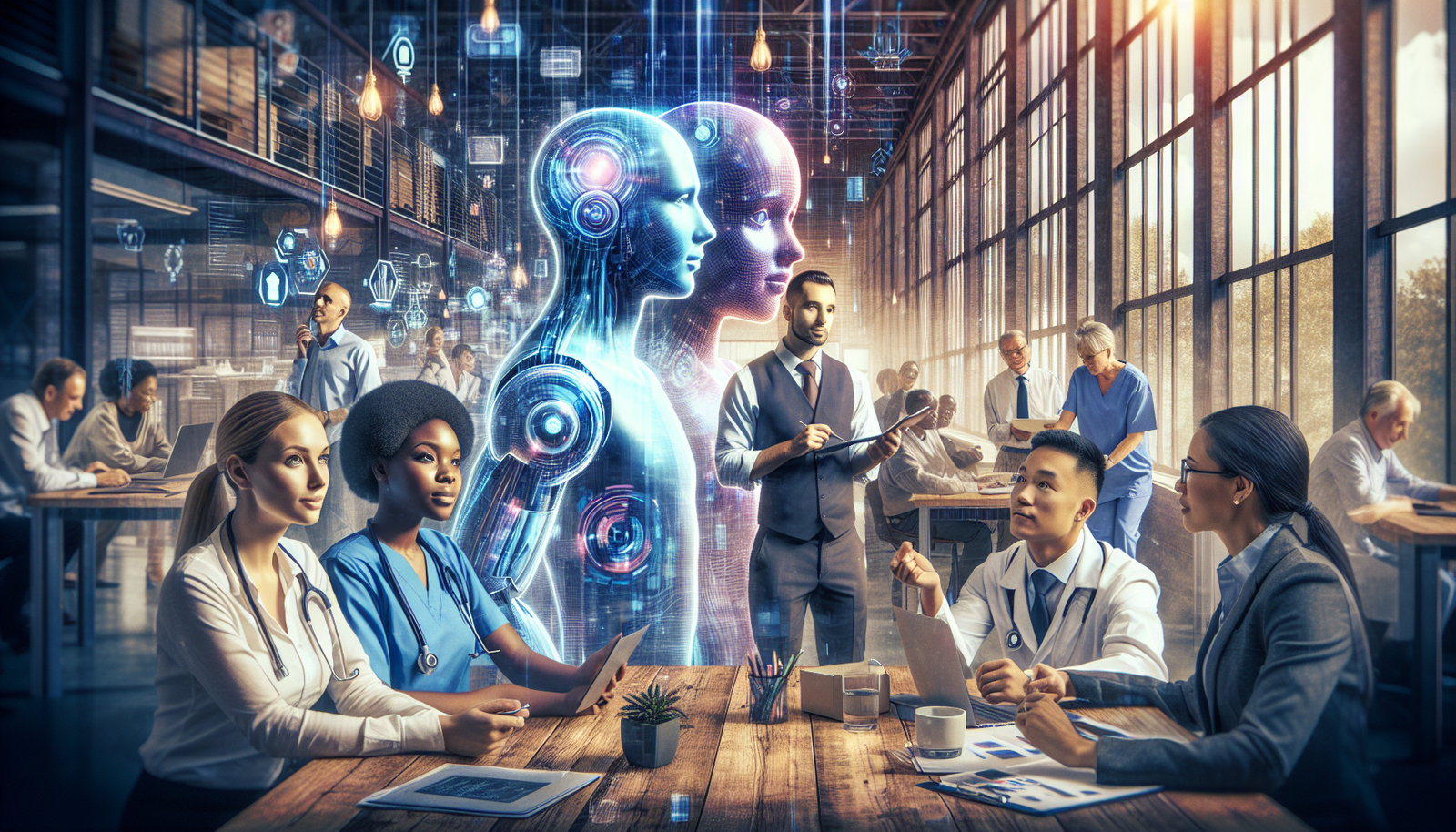A technological revolution driven by AI is radically transforming the professional world. Work processes are being redefined, leading to paradoxical challenges and opportunities. Automation and task optimization are disrupting old employment models. Companies are faced with a necessity to adapt to a constantly evolving market. Anticipating the future requires a deep understanding of the migratory dynamics of work. Economic actors must become aware of the emerging trends influencing the skills, roles, and expectations of workers. A real challenge for the sustainability of companies and the construction of a stable future.
The report from the Tony Blair Institute (TBI) reveals the remarkable influence of artificial intelligence (AI) on professional dynamics. Technology, through its rapid advancement, necessitates active preparation from policymakers in the face of its integration in the workplace.
Economic Opportunities
Estimates suggest that by fully adopting AI, companies in the United Kingdom could significantly boost their productivity. This improvement could free up about a quarter of working time in the private sector, which is equivalent to the annual contribution of 6 million workers.
Time savings mainly come from AI software capable of performing cognitive tasks such as data analysis and repetitive administrative operations. Some sectors, notably banking and finance, exhibit high exposure to the impacts of such technology, while complex manual jobs are likely to be less affected.
The professional transformation by AI could initially lead to job losses, but it could also stimulate a demand for labor in new areas. Over the decades, technology has often catalyzed the emergence of new products and services, thereby generating new jobs.
Impacts on Education
The repercussions of AI extend to the education system. The integration of AI in learning could increase the average level of education by about 6%, according to forecasts. This customization facilitates access to opportunities and enhances the quality of human capital over time.
Health Improvements
Another crucial dimension concerns the healthcare sector. AI could help improve public health, thereby reducing welfare costs. AI’s regenerative capabilities accelerate medical research, facilitate preventive care, and promote the reintegration of disabled individuals into the labor market.
Transformation of Workplaces
The challenges inherent in AI include a potential for increased surveillance and stress related to technological tools. Careful management of these systems is required to ensure a safe, inclusive, and engaging work environment. The TBI proposes strategic recommendations to minimize disruptions caused by AI.
Among these suggestions, upgrading labor market infrastructure and using AI to improve job matching processes stand out. Creating an early awareness system could help workers understand the effects of AI on their jobs and receive guidance on career paths.
Preparing for the Future Amid AI Challenges
In light of the uncertainties surrounding the impact of AI, the TBI advocates for policy changes to maximize the benefits. Incentives for adopting AI in various sectors, as well as the creation of supporting programs, can promote an adaptable workforce.
The enthusiasm for innovation must be balanced by attention to associated risks. Political actors are encouraged to adopt a proactive stance toward innovation while remaining attentive to the issues, in order to nurture a dynamic and resilient economy.
The report concludes that while AI presents undeniable risks, the potential benefits should not be underestimated. Voices within the economic community advocate for a differentiated approach aimed at transforming this period of uncertainty into a strategic opportunity for the future of work.
Frequently Asked Questions
What is the direct impact of AI on existing jobs?
AI has the potential to replace certain routine tasks, which may lead to job losses in some sectors. However, it also creates new opportunities by increasing productivity and generating new professions.
How can AI affect the productivity of companies?
By automating repetitive processes and improving data analysis, AI can significantly enhance company productivity, allowing workers to focus on higher-value tasks.
Which sectors will be most affected by AI adoption?
Sectors like finance, transportation, and customer service are among the most likely to be affected due to their reliance on automatable tasks.
What skills will be necessary in the future because of AI?
Skills in data analysis, management of advanced technologies, and solving complex problems will be increasingly sought after as AI becomes ubiquitous in the workplace.
Will AI create more jobs than it destroys?
It is likely that AI will create as many jobs as it destroys due to the emergence of new technology-related sectors and opportunities aligned with the new services and products it enables.
How can governments prepare the labor market for AI?
Governments can facilitate adaptation by investing in vocational training, encouraging technological education, and supporting policies that promote a fair transition to an AI-driven economy.
What are the ethical implications of AI on work?
The ethical implications include the need to ensure fair treatment of employees, protect their privacy, and ensure that AI does not reinforce existing inequalities in the labor market.
How can AI improve the quality of education for work?
AI can personalize learning and provide individualized support, which can improve student outcomes and their preparedness for an ever-evolving labor market.
How will AI influence remote work?
AI can facilitate remote collaboration through advanced communication tools and enhance employee performance management by automating data analyses related to work activities.
What measures can be taken to mitigate negative impacts of AI on employment?
It is crucial to develop retraining programs and establish compensation systems to support workers affected by automation.






